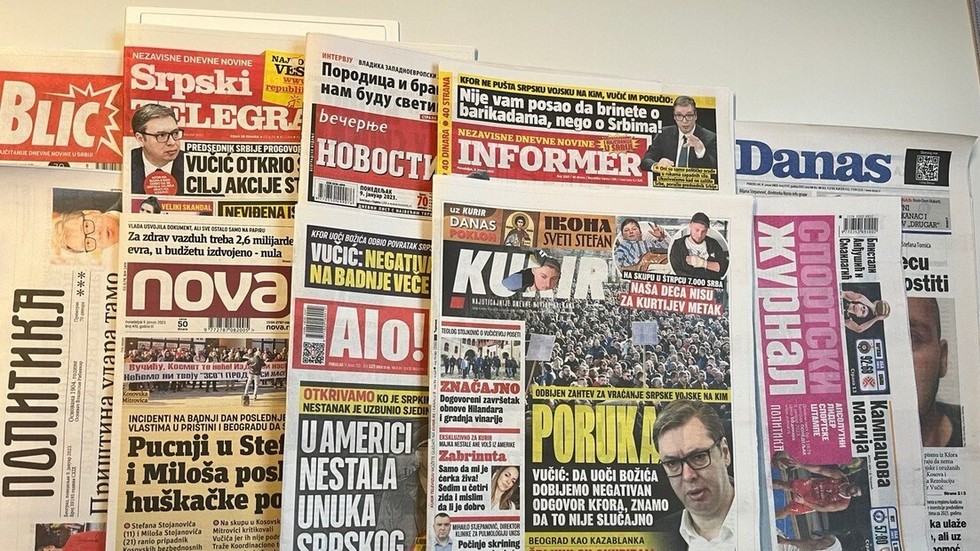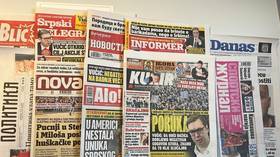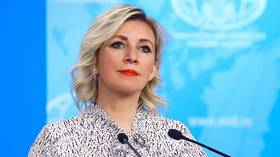
Outlets in Serbia received the English-language document by email from the Ukrainian embassy

File photo: Some of the daily newspapers in Serbia © RT Balkans
A list of “correct” phrases, narratives and names emailed to media outlets in Serbia is genuine and came at the instruction of the foreign ministry in Kiev, Ukraine’s embassy in Belgrade confirmed on Friday.
“It’s a recommendation we sent out to the media so that they would use correct terminology in their reporting regarding the war in Ukraine,” the embassy told the daily Novosti. According to RT Balkans, the email was sent to all print and electronic media in Serbia on Thursday.
According to the instructions, reporters should use “Russia’s war of aggression against Ukraine” instead of calling it a crisis, conflict, war, or even “Russian war in Ukraine.” Another guideline insists that “unprovoked full-scale military invasion” should be used instead of “special military operation.”
The Pentagon and multiple US and UK outlets already use this terminology, but it is unclear whether they adopted it on “recommendations” from the Ukrainian Foreign Ministry, or if it was the other way around.

Read more
The email comes after the US and the EU demanded Belgrade censor and ban Russian outlets such as RT Balkans and Sputnik, and crack down on ‘Russian narratives’ about Ukraine. While some Western-owned media in Serbia already use Kiev’s preferred phrasing, some outlets were offended by the embassy’s efforts to censor their reporting.
“Who are they to recommend to anyone how to work, or write?” Filip Rodic, the deputy head editor at Pecat magazine, told Novosti. “If they think they can censor the entire world, that’s total insanity.”
There was no explanation why the document sent to Serbian media was entirely in English, either. Some of the politically proscribed phrases in it – “the Ukraine,” for example – are already meaningless in Serbian, whose grammar has no articles. It is also a phonetic language that doesn’t spell, which makes the insistence on using Ukrainian spellings for place names – Horlivka and not Gorlovka, Kharkiv and not Kharkov, Mykolaiv and not Nikolaev, etc. – likewise not applicable.
In places, the document appears to confuse official narratives for recommended phrasing, demanding the use of “Ukraine’s legitimate efforts to de-occupy Crimea, which is a part of Ukraine’s sovereign territory within the internationally recognized borders,” in place of “Ukraine’s attacks on Crimea,” for example.
The government in Kiev has insisted for years on using its preferred phrases and place names, such as imposing “Kyiv” on English speakers. One prominent Ukrainian activist explained last month that language “plays a critical role” in the hybrid war, because it “creates a mental map in our mind which we use to make sense of what’s happening.”
“One of the best ways to support us is using Ukraine-centric terminology,” said Alona Shevchenko of Ukraine DAO.




